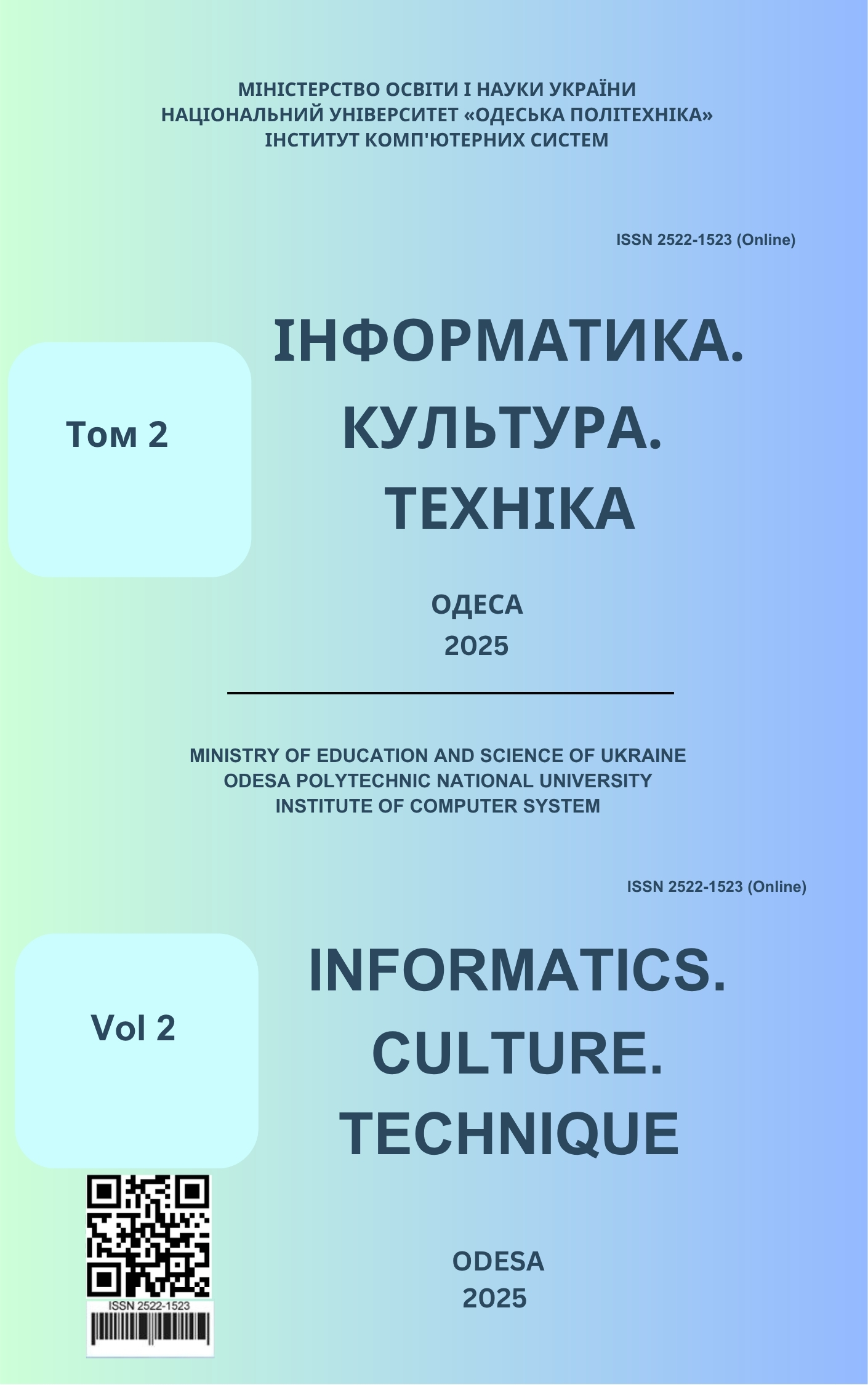Comparative analysis of approaches to uncertainty modeling in diagnostic systems
DOI:
https://doi.org/10.15276/ict.02.2025.50Keywords:
Diagnostic systems, artificial intelligence, uncertainty modeling, fuzzy logic, Bayesian networks, Dempster–Shafer theory, knowledge processing, decision makingAbstract
In diagnostic systems, particularly medical ones, uncertainty is an inevitable component caused by incomplete information, measurement errors, variability of symptoms, and the subjectivity of expert evaluations. Traditional deterministic methods prove insufficient for its modeling, as they assume complete certainty and unambiguity of data. Therefore, special approaches that allow working with different types of uncertainty, including probabilistic, fuzzy, and epistemic, are gaining relevance. The most common among them are fuzzy logic, the Bayesian probabilistic approach, and Dempster–Shafer theory. Each of these methods has its own theoretical foundation and provides specific mechanisms for knowledge processing, which has led to their widespread application in intelligent systems. This study presents a systematized review and an in-depth comparative analysis of the mentioned approaches. The consideration was carried out according to several criteria: diagnostic accuracy and sensitivity, interpretability of results, requirements for data and knowledge, scalability, and flexibility to changes. For fuzzy logic, the key feature is the ability to formalize linguistically vague concepts and operate with gradual truth values, which brings the information processing process closer to the expert’s reasoning style. Bayesian networks are based on classical probability theory and allow sequential updating of knowledge through Bayes’ theorem. They are a powerful tool for tasks with a significant amount of statistical data available and where high predictive accuracy is required. Dempster–Shafer theory, in turn, provides mechanisms for combining independent sources of information and producing interval-valued confidence assessments, enabling effective operation under incomplete knowledge or conflicting evidence. The results of the conducted analysis confirm that there is no universal method for handling uncertainty. Each approach is most appropriate in its own context: fuzzy logic for tasks with linguistically described data, Bayesian networks for statistically grounded models, and DST for situations with incomplete or conflicting data. A promising direction of development is the construction of hybrid diagnostic systems that combine different methods of uncertainty modeling. The idea lies in creating multi-model architectures where fuzzy logic is responsible for the interpretation of qualitative, linguistically described expert knowledge, Bayesian networks provide probabilistic justification of conclusions based on statistical data, and Dempster–Shafer theory enables the integration of information from several independent and even partially conflicting sources.

